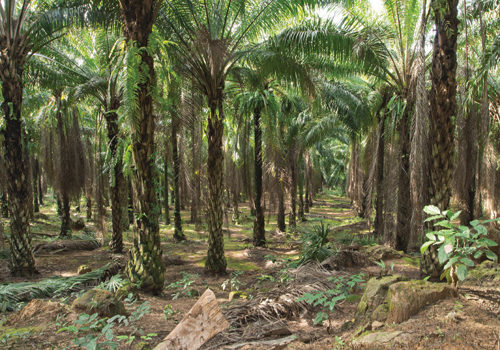Palm oil is ubiquitous at the supermarket today, as it’s found in everything from margarine to cereal to potato chips. Palm oil imports have ramped up 485% over the last decade or so, according to the Rainforest Action Network’s palm oil factsheet. The consequence of this increased production is rampant rainforest destruction, and yet this issue may only be reaching the fringes of general consumer awareness.
Two recent developments display how the issue is progressing. Kellogg Company committed in February to work with palm oil suppliers on a fully traceable supply chain. The company will strive to source palm oil that is produced in environmentally, socially and economically responsible ways. In real terms, this means production that does not involve deforestation, negative impacts on climate change or violations of human rights.
Meanwhile, Procter & Gamble was the subject of a recently released yearlong Greenpeace investigation into destructive palm oil practices. Palm oil is also a common ingredient in detergents, shampoos and cosmetics. The claim is that the company sources palm oil from producers connected to extensive clearance of orangutan habitat in Indonesia. Specifically, investigators followed the palm oil cultivation of BW Plantation Group, which is part of P&G’s supply chain. They documented orangutan deaths connected with this activity, including an orangutan skull found in a shallow grave just outside Tanjung Puting National Park, known for its orangutan conservation.
The rainforests and peat lands of places like Sumatra are being devastated by the palm oil trade, and orangutans have been held up by activist groups as a symbol of the impact on wildlife. Rainforest Action Network says orangutans face an extreme threat of extinction from palm oil expansion, along with threats to tigers and other animals. Also of concern are greenhouse gas emissions associated with certain production methods.
Kellogg Company, as part of its new sustainability efforts, is joining the Roundtable on Sustainable Palm Oil (RSPO), which was founded in 2004. Critics have said RSPO implicitly sanctions unsustainable practices, including the needless clearing of forests by some suppliers.
The RSPO’s framework for sustainability also appears to be in jeopardy, as it was recently reported that the Malaysian Palm Oil Association (MPOA), which is a trade group for private palm oil plantations, was deciding whether to quit RSPO over disagreements about sustainability goals.
Published in WholeFoods Magazine, April 2014










